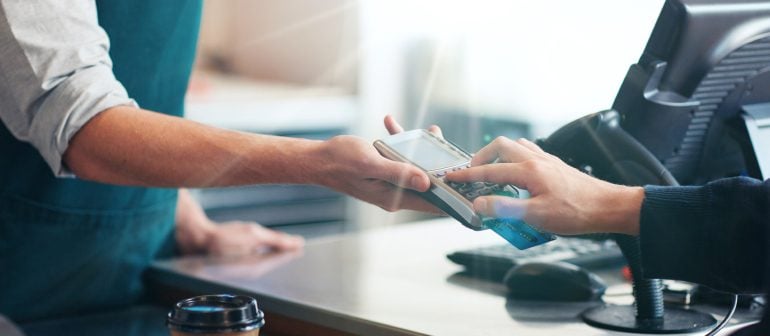What Is a Debit Card and How Does It Work?
Debit cards directly pull money from your checking account to allow you to make purchases online and with retailers.

Many, or all, of the products featured on this page are from our advertising partners who compensate us when you take certain actions on our website or click to take an action on their website. However, this does not influence our evaluations. Our opinions are our own. Here is a list of our partners and here's how we make money.
What is a debit card?
Debit card definition: A debit card is a payment card that lets you make secure purchases online and in person by drawing money directly from your checking account. You're not borrowing from a line of credit like you would with a credit card or a “buy now, pay later” service; the money on your debit card pulls from your own money as you spend. You can also use your debit card to withdraw or deposit cash at ATMs.
In addition to cash registers and ATMs, debit cards work with mobile payment platforms such as Apple Pay, Samsung Wallet and Google Wallet, as well as with many money transfer apps such as Venmo and Cash App.
How to get a debit card
Apply for and open a checking account. Most banks and credit unions give you a free debit card when you open a checking account. Activate it by following the instructions you’re given and set up your PIN for ATM use and purchases.
If rejected for a checking account, consider a prepaid debit card. If you don’t have access to a bank account and want to try using a prepaid debit card instead, check out NerdWallet’s list of best prepaid debit cards.
Check out other related products and accounts. If you want to build credit, a secured credit card may be a better fit for you. Or, if your application to get a regular checking account is denied, opt for a second chance checking account.
» Ready to make a move? Here's how to open a bank account
What's the difference between a debit and credit card?
Debit cards require users to pay now, as the card uses money directly from your checking account for purchases or ATM withdrawals. If a debit transaction puts your account into a negative balance, you may be subject to overdraft fees.
Credit cards allow you to pay for your purchases later. You are essentially borrowing money from the credit card issuer with the understanding that you can pay the money back at the end of your statement period. If you don’t pay the amount on time or in full, you may be subject to late fees or interest fees. Credit cards often come with a reward system where you earn points for making purchases, and you can usually redeem those points for statement credit, cash back or purchases through your credit card’s shopping portal. Credit cards also typically offer greater consumer protections, such as zero-liability policies in case you experience fraud.
What's the difference between a debit and an ATM card?
A debit card can be used to make purchases as well as withdraw cash from an ATM, whereas a typical ATM card is used exclusively for withdrawing cash from a machine.
The exception is when the ATM card has a Visa or Mastercard logo, in which case it functions like a debit card and immediately withdraws funds from your bank account.
What's the difference between regular debit cards and prepaid debit cards?
Regular debit cards perform a real-time transaction from your bank account every time you make a purchase or ATM withdrawal. Prepaid debit cards, on the other hand, require you to load the card in advance via cash, checks, online transfers or a visit to a retailer.
Prepaid debit cards can be a good option for people who don’t have access to a bank account but don’t want to use cash for their online purchases. Keep in mind, however, that prepaid cards don’t help you build credit.
Typical debit card fees
Debit card transactions are not always free. Here are some costs to watch out for:
Out-of-network ATM fee: Usually around $3. This occurs if you use an ATM that isn’t in your bank’s network.
Foreign transaction fee: Usually 1% to 3% of the transaction amount. This occurs if you make purchases or ATM withdrawals outside the U.S. (See what big banks charge.)
Debit card replacement fee: Generally a small fee, sometimes free (expedited delivery may cost more). This occurs if the card is lost or stolen and you need another one mailed. If not free, the cost to replace a card is typically $5-10.
Overdraft or nonsufficient funds fee: up to $35, though many online banks and credit unions charge less. This occurs if you spend more than you have in your checking account. (See what big banks charge for overdrafts.)
Monthly fees: Some banks charge monthly account maintenance fees in the range of $5-15 for checking accounts and — by extension — debit card holders. However, these fees can usually be waived if you maintain a minimum balance or have a certain amount of money deposited into your account on a monthly basis.
What to do if your debit card is stolen
Call your bank immediately, and follow up in writing. You can be responsible for charges made on a lost or stolen debit card, depending on when you report the loss or theft to your bank. Here’s the maximum you are responsible for based on when you report the loss or theft:
Before any fraudulent charges occur: $0.
Within two business days: $50 limit.
Within 60 calendar days: $500 limit.
After 60 days: No protection.


